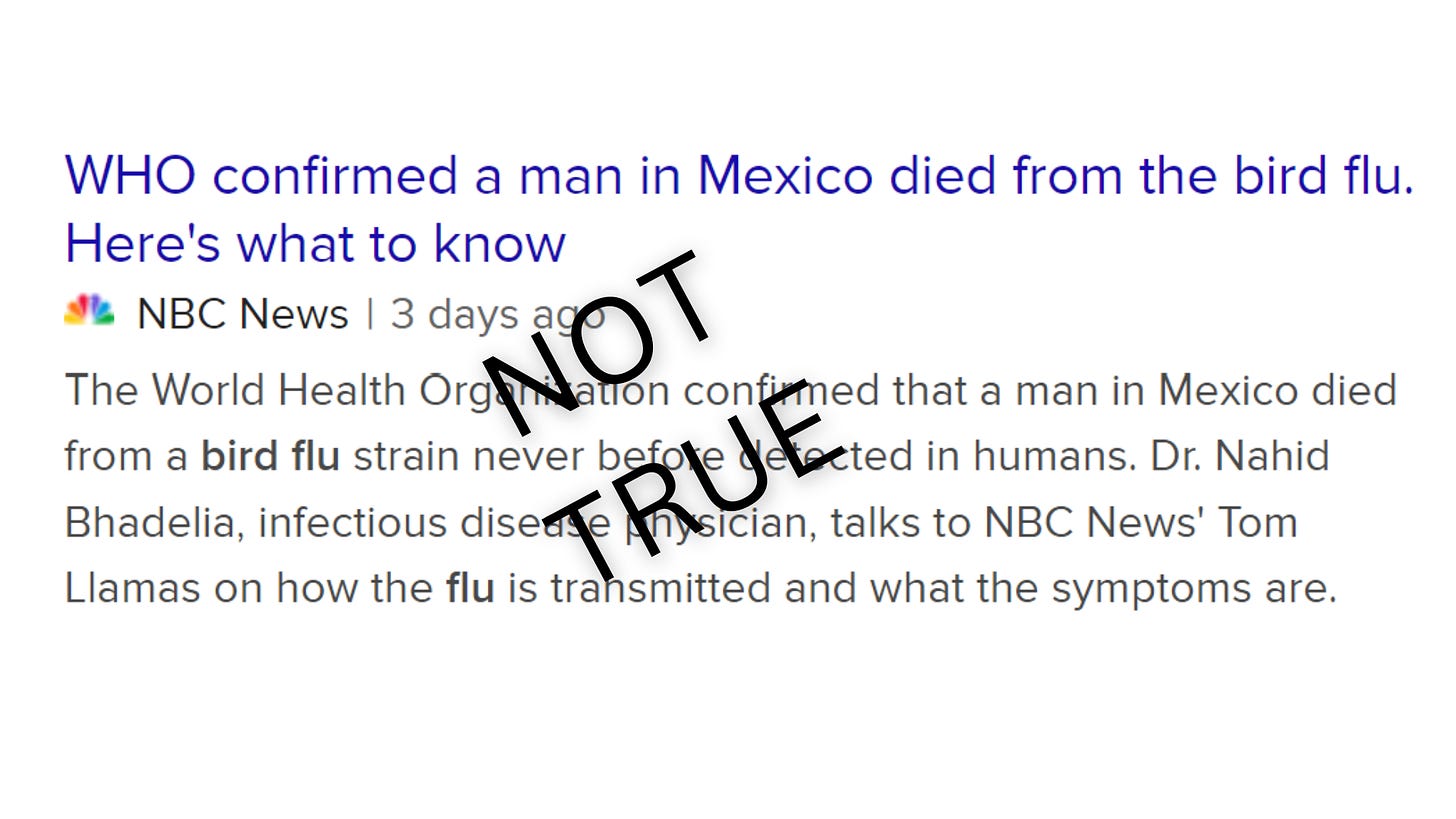Mexican Health Secretary Jorge Alcocer on Thursday disputed an announcement by the World Health Organization (WHO) that a man's death in Mexico was caused by a strain of bird flu previously unknown in humans.
During a morning briefing, Alcocer dismissed the WHO's statement and assured that the 59-year-old man, reported to have died from the A(H5N2) strain of avian influenza, actually "died from other causes, mainly kidney and respiratory failure."
Alcocer urged the public to remain calm and to view the WHO's announcement with skepticism, stating it is "not accurate."
"I can point out that the statement made by the World Health Organization is quite misleading, as it speaks of a fatal case of bird flu, which was not the case," he said.
On Wednesday, the WHO announced that a resident of Mexico had become the world's first person to die from a bird flu strain not previously detected in humans.
This is just one mainstream media headline earlier in the week about the case:
According to WHO, the man had numerous underlying medical conditions and had been bedridden for three weeks before developing acute symptoms. On April 17, he reported fever, shortness of breath, diarrhea, nausea, and general malaise.
Support my mission of independent journalism. Become a paid subscriber for $5 a month. You can quit at any time.
On April 24, he sought medical attention and was promptly hospitalized at the National Institute of Respiratory Diseases (INER), where he reportedly died the same day.
Alcocer argued that the WHO failed to recognize that the patient died from complications resulting from longstanding health problems such as diabetes and renal failure, not avian flu.
He noted that investigations found no contagion among the people who had contact with the patient.
"So far, there is no evidence of human-to-human transmission," he added.
In its briefing, the WHO detailed that the Mexico National Influenza Centre confirmed the positive result for A(H5N2) influenza.
Alcocer was scheduled to meet with the National Institute of Respiratory Diseases later in the day for further details.




